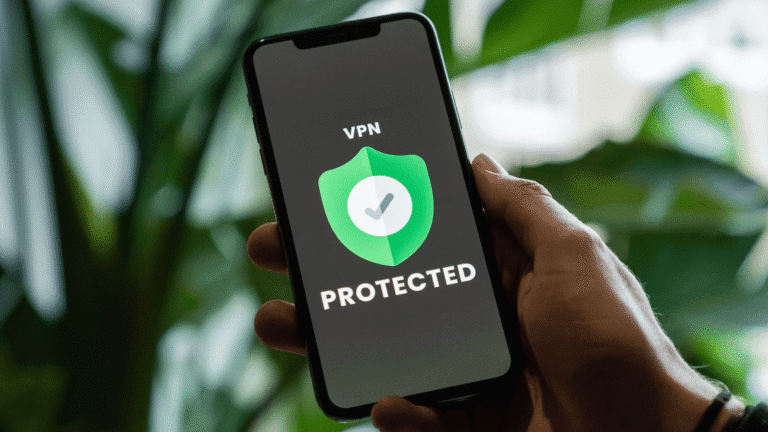How to Bypass a Website Limit: Safely Get Past Restrictions

If you’ve ever tried to access something online—be it an article, video, or service—only to be blocked by a paywall or a message saying it’s “not available in your region,” you know how frustrating it can be. It’s like being locked out of a room that’s full of useful information or entertainment, and it leaves you feeling like you’re missing out. So, how to bypass a website limit such as a geo-restriction or paywall?
Here’s the good news: there are ways to bypass such restrictions to access the content you want, without hitting any frustrating roadblocks. Whether it’s a news site with a paywall or a streaming service that’s blocked in your country, there are tools and methods that can help you get past these restrictions safely—and without compromising your privacy or security.
In this guide, we’re going to show you exactly how to bypass website a limit, whether you’re dealing with paywalls or geo-restrictions. Let’s dive in and explore the safest ways to unlock the content you’re after!
Why Learn How to Bypass a Website Limit?
Before we jump into how to get past website limits, let’s take a moment to understand why these restrictions exist in the first place. There are two main types of limits that you might encounter when browsing the web:
- Paywalls: Many websites, especially news outlets, online magazines, or premium streaming services, use paywalls to restrict access to their content. They often provide a limited amount of content for free but put the best stuff behind a subscription, encouraging readers or viewers to sign up for a paid membership.
- Geo-Restrictions: These limits are based on your location. Certain websites, especially streaming platforms like Netflix, Hulu, or BBC iPlayer, only offer specific content to users in certain countries or regions. This can be due to licensing agreements or local laws. The result? You’re unable to watch a show, read an article, or access a deal because it’s “blocked” for your location.
Both types of limits are designed to either make money (with paywalls) or comply with legal requirements (with geo-restrictions). And while we understand why websites use them, that doesn’t make dealing with them any less frustrating.
Methods to Bypass Paywalls and Geo-Restrictions
Now that we know why websites impose limits, let’s take a look at the methods you can use to safely bypass website limits and access the content you want—without breaking any rules or compromising your online security.
1. Use a VPN
One of the easiest and most effective ways to bypass geo-restrictions is by using a VPN. A VPN lets you hide your real IP address and appear as if you’re browsing from a different location. This is especially useful if a website restricts its content based on your geographic location—by connecting to a VPN server in a different country, you can trick the website into thinking you’re located somewhere else.
How a VPN Works:
When you connect to a VPN, your internet traffic is encrypted and routed through a server in the location you choose. The website sees the IP address of the VPN server, not your real one. So, if you’re trying to access a service that’s only available in the UK, for example, you can connect to a UK server, and the website will allow you access.
Pros of using a VPN:
- A VPN gives you complete control over your virtual location, allowing you to easily bypass geo-restrictions.
- It provides robust security and privacy features by encrypting your connection and masking your real IP address.
- VPNs are user-friendly and often come with easy-to-use apps for desktops and mobile devices.
Cons of using a VPN:
- Some websites, particularly streaming platforms, actively block VPN traffic. This means you may need to find a VPN that isn’t blacklisted.
- Free VPNs can slow down your connection and may offer weaker security features.
If you’re serious about bypassing geo-restrictions, using a reliable VPN is a solid choice, but remember that not all VPNs are created equal. Paid services often offer faster speeds and better security than free ones.
2. Use Proxy Servers
Another popular option to bypass website limits is using a proxy server. Like a VPN, a proxy helps you mask your real IP address by routing your traffic through a server located somewhere else. It’s a simple way to bypass geo-restrictions and gain access to restricted content.
How Proxy Servers Work:
When you connect to a proxy, it acts as an intermediary between you and the website. Instead of the website seeing your real IP address, it sees the proxy’s IP. If the proxy is located in a region with no restrictions, you’ll be able to access the content.
Pros of using a Proxy Server:
- Proxies are typically faster than VPNs, making them useful for bypassing geo-restrictions on video or streaming services.
- They’re easy to set up, and many proxies don’t require extra software—just configure your browser or app to use the proxy.
Cons of using a Proxy Server:
- Proxies don’t offer the same level of encryption as a VPN, meaning your privacy isn’t as secure.
- Some websites can detect and block proxy IP addresses, so proxies may not always work as reliably as VPNs.
While proxies are a good option for unblocking content quickly, they won’t provide the same level of privacy protection as a VPN, so use them with caution.
3. Use Antidetect Browsers
If you’re trying to figure out how to bypass a website limit with an even more advanced and secure tool, an antidetect browser might be what you’re looking for. These specialized browsers are designed to mask your digital fingerprint and help you avoid detection when browsing the web.
What Are Antidetect Browsers?
Antidetect browsers are privacy-focused tools that create random digital fingerprints each time you browse, making it harder for websites to track or restrict your online activities. Websites often track users using a combination of data points—such as your device’s screen resolution, fonts, or even plugins. Antidetect browsers spoof this data, so you appear as a new user every time you access the site.
These browsers are especially useful for bypassing paywalls and geo-restrictions that use advanced tracking methods.
Popular Antidetect Browsers:
- Multilogin: This antidetect browser lets you create multiple profiles with unique digital fingerprints. It’s particularly useful for bypassing paywalls and geo-restrictions without getting flagged.
- Ghost Browser: Ghost Browser allows you to manage multiple sessions at once with different identities, so you can avoid being tracked across websites.
- Linken Sphere: Known for its privacy features, Linken Sphere ensures that your digital fingerprint is masked, making it harder for websites to detect or restrict your access.
Pros of using Antidetect Browsers:
- These browsers offer a high level of anonymity by masking your digital fingerprint.
- They can bypass advanced tracking techniques and avoid being flagged by websites that use sophisticated fraud detection systems.
- They are great for users who need to access multiple accounts or perform web scraping without being tracked.
Cons of using Antidetect Browsers:
- Antidetect browsers can be a bit more complicated to use than VPNs or proxies.
- Many antidetect browsers require a paid subscription, and they’re more expensive than typical VPN services.
If you need to bypass website limits in a way that keeps your online activity hidden and anonymous, antidetect browsers are a powerful option. Just be prepared for a bit of a learning curve.
4. Clear Your Browser Cookies and Cache
Sometimes, the simplest solution is the best. If you’re dealing with a paywall, clearing your browser’s cookies and cache can help you bypass website limits. Many websites track the number of articles you’ve read or how much content you’ve accessed for free via cookies. If you clear these cookies, you can reset the counter and get back to reading without hitting the paywall.
How to Clear Cookies and Cache:
- In Chrome: Go to settings > Privacy and Security > Clear browsing data. Select “Cookies and other site data” and “Cached images and files,” then click “Clear data.”
- In Firefox: Go to options > Privacy & Security > Cookies & Site Data > Clear Data.
Pros of clearing cookies:
- It’s a simple, no-cost way to bypass paywalls and get back to reading.
- It doesn’t require any extra software or subscriptions.
Cons of clearing cookies:
- You might lose other site preferences, like saved logins or personalized settings.
- This trick is often a temporary fix, as some websites use more advanced tracking methods like IP address tracking or browser fingerprinting.
Clearing cookies is a quick and easy fix, but it may not be a long-term solution if the website has more sophisticated tracking methods.
Staying Safe While Learning How to Bypass a Website Limit
While bypassing website limits can be tempting, it’s important to approach it with caution. Always prioritize your privacy and security, especially when using tools like VPNs, proxies, or antidetect browsers. Stick to reputable services, avoid shady websites, and be aware of the risks of using free or unreliable tools.
How to Check If Your Real IP Is Leaking
After changing your IP with a VPN or proxy, it’s essential to verify whether your real connection is still detectable. Pixelscan helps confirm if your setup is working correctly.
- Visit Pixelscan: Open the site while connected to your new IP. The scan starts automatically.
- Check the results: Ensure the displayed IP matches your VPN or proxy instead of your original one. Also, look for mismatches in your time zone, WebRTC, and DNS settings.
- Fix any leaks: If issues appear, try switching servers, adjusting proxy settings, or enabling DNS leak protection for better anonymity.
Testing your setup ensures that only your masked identity is visible
Conclusion
No one likes running into paywalls or geo-restrictions, especially when you’re trying to access valuable content. Luckily, there are plenty of ways to bypass website limits—from using a VPN or proxy to trying antidetect browsers or even clearing your cookies. With the right tools, you can unlock the content you need without compromising your security or privacy.
So go ahead, take control of your online experience, and bypass those annoying website restrictions with confidence!
Share this
Recently Posted
Insights & Inspirations: Our Blog

What is a Private IP Address and Why It Matters for Your Network
IP addresses play a critical role in how devices communicate with each other across the internet and private... read more

IP Quality Score: How to Maintain a Trusted Online Presence
Now more than ever maintaining a trustworthy online presence is very important. Whether you’re managing an... read more

5 Common IP Reputation Issues and How to Resolve Them
In the fast-paced digital world, your IP reputation is the silent force that influences everything from email... read more

How IP Geolocation Can Increase Spam Risk
The internet has become our go-to place for everything as we’re all juggling between convenience and privacy.... read more

What to Do If Someone Uses an IP Puller on You
The internet can be a fun and exciting place to connect with others, whether it’s for gaming, socializing, or... read more
Whoer IP Lookup - Features and Benefits
Today we’re all more connected than ever, but with that connection comes a whole new set of challenges. You... read more

What Is My IP Address And How to Change It for Better Security
In a world where almost everything is connected to the internet, one simple question can unlock a lot about... read more

WebRTC Leak Test: How to Prevent Your IP from Being Exposed
You’re using a VPN to stay safe and private online, only to discover that your real IP address is still... read more

IP Geolocation Accuracy: What You Need to Know About Tracking
If you’ve ever browsed the web and noticed ads or content tailored to your location, chances are, IP... read more

How to Check Your IP Fraud Score and Prevent Fraudulent Activity
Let’s be honest, most of us don’t give much thought to the IP address that connects us to the internet. It’s... read more

5 Easy Ways to Bypass Geo-Restricted Content
Imagine this: You’ve been waiting all week to watch the latest episode of your favorite show, only to discover... read more

IP Tracker Defense: How to Protect Your Online Privacy
In an age where every click, scroll, and search can be tracked, your online privacy is at constant risk. IP... read more

Why Websites Check the IP of Their Visitors
As you browse the internet, have you ever wondered why some websites ask you to solve a CAPTCHA, restrict... read more

"Your IP Has Been Temporarily Blocked" – Now What?
There’s nothing more frustrating than trying to access a website, only to be greeted with a message saying,... read more

What Is a Bot and Why It Uses IP Addresses to Hide Its Identity
Nowadays you can't spend time online without encountering a bot at least once—you might not even realize it.... read more

IP Blacklist Check: Why You Should Do It Regularly
One task many seem to overlook when it comes to taking protective measures for their online privacy is the IP... read more

The Best Antidetect Browser for 2025: Which One to Choose?
Maintaining privacy, security, and anonymity online is challenging, especially for those who need to manage... read more

IP Leak Detection: Methods to Safeguard Your Internet Traffic
Have you ever tried to protect your online privacy—maybe using a VPN to access streaming services or shield... read more

Top 5 Signs You're a Victim of IP Spoofing and How to Stop It
Cybersecurity threats are on the rise, and one of the sneakiest tactics that cybercriminals use is IP... read more

How to Block an IP Grabber: Tools and Tips for Enhanced Privacy
One of the main threats to your online privacy today comes from an IP grabber. These tools can track your IP... read more

How IP Score Impacts Your Online Reputation Management
In today’s digital world, your online reputation matters more than ever. Whether you’re an individual trying... read more

What Can Someone Do With Your IP Address? 5 Potential Risks
Whether we’re browsing the web, streaming movies, or interacting on social media, our devices are always... read more

How to Find Your IP Address in Seconds: A Step-by-Step Guide
Knowing how to find your IP address is essential for everything from troubleshooting network issues to... read more

How to Use an IP Checker to Troubleshoot Network Issues
Network issues are a common frustration that can leave us scrambling to find the cause. Whether you're working... read more

How to Hide IP Address to Protect Your Online Privacy
In today's digital age, knowing how to hide your IP address is essential for protecting your privacy... read more

IPv4 vs IPv6: What’s the Difference Between the Two?
The internet is something most of us use without thinking twice. We browse, stream, shop, and chat with... read more

Unmask Your IP: What Your IP Address Reveals About You
Ever wondered how websites seem to know exactly where you're browsing from? Or why some content is... read more

Proxy or VPN? How to Choose the Right Privacy Tool for You
If you've ever been concerned about your online privacy, then you've probably considered using either a VPN or... read more





